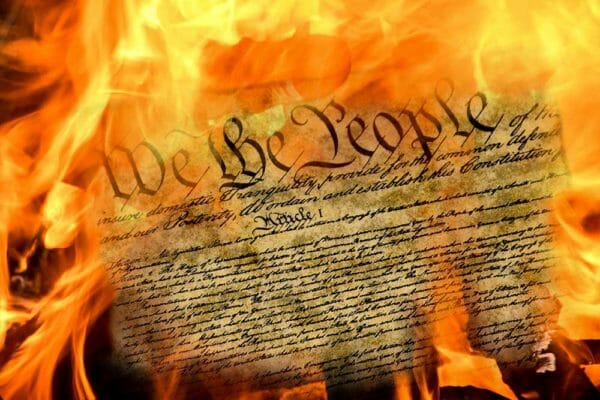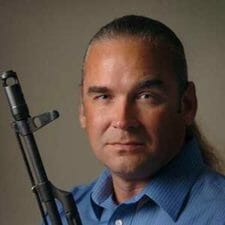
A recent report by the Center for Gun Violence Solutions, which is part of Johns Hopkins (Michael) Bloomberg School of Public Health, conflates private gun ownership with armed insurrection in order to advocate for expanded gun control.
The 32-page study, which is titled “Defending Democracy: Addressing the Danger of Armed Insurrection,” not only revisits and revises the Jan. 6th protest – even though no protesters were armed and the only casualty was 35-year-old Air Force veteran Ashli Babbitt, who was shot and killed by Capitol Police – it resurrects actual armed insurrections from American history, such as Shays’ Rebellion of 1786, the Whiskey Rebellion of 1791 and the American Civil War.
Their authors’ warped message is to be expected, especially when you consider the biased nature of their backgrounds, their sponsors, their sources, and Michael Bloomberg’s school itself. (If you type “gun violence” into the school’s internal search engine, it will yield more than 1,000 results.)
The Center for Gun Violence Solutions admits it uses a “public health approach” to identify gun-control solutions, even though a gun is an inanimate object, not a disease, ailment or disorder. The school further claims it uses “rigorous scientific research to identify a range of innovative solutions to gun violence.” However, the authors’ rigorous scientific research turned out to be nothing more than false claims gleaned from biased stories from the legacy media and other anti-gun organizations that masquerade as actual news websites.
The authors used stories from CNN, ABC News, CBS News, NBC News, PBS, NPR, VOX, The Los Angeles Times, The Atlantic, The Guardian, The Washington Post, USA Today, the Associated Press, PolitiFact, Politico, Slate and the Southern Poverty Law Center. They even used stories from two dedicated anti-gun groups, Giffords and The Trace – the propaganda arm of former New York City mayor Michael Bloomberg’s gun-control empire.
Biased authors
The report was written by Tim Carey, Kelly Roskam, and Joshua Horwitz. Carey is the law and policy advisor at Johns Hopkins Bloomberg School of Public Health. According to his bio, he is responsible for “Drafting legislation, regulations, legal reports, legislative testimony, fact sheets, and other advocacy materials.” Before moving to Johns Hopkins, Carey was the law and policy staff attorney for the Educational Fund to Stop Gun Violence and the Coalition to Stop Gun Violence.
Roskam is the director of law and policy at Johns Hopkins Center for Gun Violence Solutions. Prior to joining Johns Hopkins, she was the general counsel and legal director for the Educational Fund to Stop Gun Violence and the Coalition to Stop Gun Violence. Roskam’s bio also states she interned at the Brady Center to Prevent Gun Violence.
Horwitz is the co-director of the Johns Hopkins Center for Gun Violence Solutions. Before joining Johns Hopkins, he too worked at the Educational Fund to Stop Gun Violence and the Coalition to Stop Gun Violence, serving as executive director.
Biased report
The authors claim their report is both an examination and a warning about the threat that “armed insurrectionism poses to democracy in the United States.”
“The growing presence of firearms in political spaces in the United States endangers public health, safety, and the functioning of democracy,” the report states. “Far from being an outlier, the January 6th insurrection at the United States Capitol was part of a long line of events in which individuals have sought to use political losses to justify violence or threats of violence to disrupt our government and limit civic engagement.”
As stated, the policy recommendations presented by the authors are merely longstanding goals of the gun-ban industry, which would help propel them toward their ultimate goal of total civilian disarmament. The only difference is that now their policy recommendations are presented as necessary to “address the dangers of armed insurrectionism.”
Biased sponsors
“We would like to thank the Joyce Foundation and the Morningstar Foundation for supplying core support for this report,” the authors wrote.
The Joyce Foundation is firmly committed to gun control. According to their website, the Joyce Foundation seeks to:
- Advance and implement federal, state, and local policies and practices that reduce easy accessibility of guns to those at risk of violence
- Support policies to reduce easy accessibility of guns to those at risk of violence
- Reduce the next generation’s exposure to gun violence through education on the risks of gun ownership
- Litigate to defend evidence-based gun policies and challenge extreme gun rights policies and practices
The Morningstar Foundation is a 501(c)(3) nonprofit founded in 1982. In fiscal year 2017, the Morningstar Foundation reported $16,533,591 in revenue and $14,476,618 in expenditures, which included grants to many left-of-center organizations.
Some of the recipients include:
- Educational Fund to Stop Gun Violence
- The Southern Poverty Law Center
- States United to Prevent Gun Violence
- Violence Policy Center
In 2001, Johns Hopkins University renamed its School of Hygiene and Public Health to the Bloomberg School of Public Health. The change came after Michael Bloomberg donated more than $100 million to the university – the largest cash gift in the school’s 125-year history.
“I’m grateful and proud to have my name linked with the world’s greatest public health school,” Bloomberg said in 2001. “I’ve always supported Johns Hopkins just because it gives me great personal pleasure to be associated with faculty, researchers. and students who do such tremendous work on issues that really matter. This honor is really icing on that cake for me.”
This story is presented by the Second Amendment Foundation’s Investigative Journalism Project and wouldn’t be possible without you. Please click here to make a tax-deductible donation to support more pro-gun stories like this.
About Lee Williams
Lee Williams, who is also known as “The Gun Writer,” is the chief editor of the Second Amendment Foundation’s Investigative Journalism Project. Until recently, he was also an editor for a daily newspaper in Florida. Before becoming an editor, Lee was an investigative reporter at newspapers in three states and a U.S. Territory. Before becoming a journalist, he worked as a police officer. Before becoming a cop, Lee served in the Army. He’s earned more than a dozen national journalism awards as a reporter, and three medals of valor as a cop. Lee is an avid tactical shooter.
